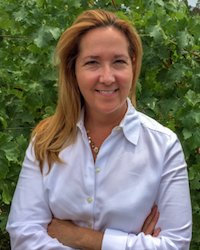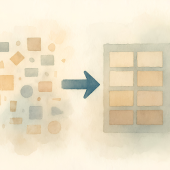Jill Hoffman, the co-founder, former general counsel, and CEO of Qorkz Wine, didn’t set out to change how consumers buy and sell wine. But now that the company has been around for about two years, with positive revenue and sales in five states, aspiring entrepreneurs and wine aficionados wonder: How did she do it?
Before founding Qorkz, which connects limited production wineries with savvy wine connoisseurs, Hoffman was focusing on wine law in her private practice. “Very few people had expertise for wineries specifically and could appreciate their pain and pressures,” says Hoffman. Where many people see just a beverage, Hoffman sees much more. She explains: “Wine is about agriculture, art, the passion of the winemaker, family, and business. Living in the Bay Area, I knew a lot of wine makers and became intimately familiar with their challenges.”

As Hoffman perfected her wine-specific legal skills, she became inspired. She noticed that many people get into the winery business because of their passion for wine — most don’t actually have business backgrounds. Hoffman also realized that e-commerce was booming, making it easier to sell wine online, a channel of commerce that was not available before. And speaking of stars aligning, the US Supreme Court reached a decision in Granholm v. Heald, 544 U.S. 460, which made it much easier for wineries to compete on the national level.
Hoffman saw an opportunity to help small wineries tell their stories, while educating wine consumers about what they drink and serve. “I took this exciting opportunity to co-found Qorkz,” she explains. “We focused on leveraging e-commerce technology and social media to create a marketplace for small wineries to educate consumers, tell their stories, and have a shot in the risky business of wine-making.” Along the way, Hoffman embraced three key lessons.
Remove barriers and add high-quality value
Hoffman focused on adding value from day one, without any unnecessary barriers. “We talked to wineries before we even went live,” she explains. “We started with ten wineries. It was clear that the need was there. We wanted to make it very easy for wineries to join, with no upfront or subscription fees.” The team gained their clients’ confidence by bringing them on quickly while maintaining quality.
By eliminating traditional barriers, Qorkz became operational much sooner. Clients were inspired by the immediate value Qorkz added. “It became quickly apparent that our reach is much larger than what these wineries could reach on their own,” Hoffman observes. “We save wineries a lot of money. We bring them opportunities that they would not have before. We really wanted to help these small businesses.”
Hoffman explains that she and her team took lessons and guidance from the Lean Startup methodology. “We took important components, cobbled them together, and made the idea operational relatively quickly,” Hoffman says. “Wineries got it right away. They were eager and came along immediately.”
Tell stories to make connections and build loyalty
According to Hoffman, consumers want to understand their wine. This key element is missing from the traditional wine industry. “Most retail experiences miss out on the opportunity to make consumers more loyal to wineries,” Hoffman notes. “When wineries sell retail, their stories are not readily available to the consumers. This means that consumers are not able to make a connection with the product, understand winemaking, or emphasize with the winery’s challenges.”
The wine industry is about more than just consuming wine — it’s about the entire wine experience, Hoffman explains. “People want to talk about what they serve at their tables. This, in turn, helps them to be more engaging hosts, entertain well, and ultimately enjoy wine,” she says. “Everyone makes connections through stories. So, it is important to incorporate stories in the overall business model. By emphasizing storytelling, we allow wineries to be heard, educate consumers, and entertain guests.”
Emphasizing storytelling also helps add value for Qorkz’s clients. “We help wineries explain their wine, what goes into wine, why certain years taste the way they do, what challenges they have been facing, how the wine business affects their families and lifestyles, how to enjoy various wines best, and many related stories,” explains Hoffman. This helps Qorkz create a friendly virtual tasting room experience, which helps consumers truly understand and appreciate what they are drinking. “It is just more enjoyable when you understand what you serve!” says Hoffman.
Embrace risk as a part of business — and life
“Everything about wine is an expression of the winemaker, from the bottle shape and label color, to the way it is made, when it is made, where it is sold, and many other decisions,” Hoffman states. “For our winery customers, who make wine in small quantities, every wine is their baby.”
She continues: “Anybody who wants to make wine knows that you need to spend a lot of time and resources. Winemakers are always taking risks.” For example, she says, “Winemakers can pick grapes too early or leave them too long. The grapes may develop a mold or become too high in sugar content.” Because winemaking is ultimately a farming business, it’s also highly dependent on the weather, which is uncontrollable. “They are taking a gamble in every moment of wine producing,” Hoffman declares. “It is incredible the amount of risk they take with every vintage.”
Hoffman found the risk-taking of winemakers relatable while developing her business. “Winemakers gamble every step of the way. I found this affinity for risk relatable when I left a law firm to start my business,” she says. “It was a gamble, but I realized that taking a risk is a part of creating something beautiful and enjoyable that may be ultimately shared with the world.”
Two years into Qorkz, Hoffman can proudly see that her gamble has been worth it. Her journey of removing barriers, telling stories, and adding value is inspirational to anyone hoping to make the leap into growing their own business.




